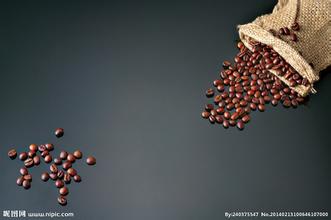Excellent Taste of Tanzanian Coffee Flavor description Taste treatment method characteristics of Manor
Kilimanjaro AA is the highest grade of beans, its grains are full, pure flavor, rich and refreshing, all aspects of quality are good. It is usually more acidic than Kenya coffee and evenly stimulates the taste buds in the middle and sides of the back of the tongue, feeling a bit like the sour taste of tomato or soda. After moderate or more moderate baking, it has a strong aroma, then grind it into a fine powder, soak it in a pot of boiling water, and invite friends to sit around and taste it. The famous coffee brands in Tanzania are Africafe, Tanica Cafe, Kilimanjaro and so on, and their quality is much better than the Nestle coffee we often drink. Tanzanian coffee has long been loved by Europeans and has joined the ranks of famous products. Europeans give Tanzanian coffee the nickname "coffee gentleman", and coffee connoisseurs call it the "coffee swordsman" with the mocha of "King of Coffee" and "Lady of Coffee".
Raw beans: raw beans are unbaked beans, which contain 11.5% fat; 11.5% moisture; 28.6% crude fiber; 4.0% minerals; 6.2% tannic acid; 1.3% caffeine; 17.0% essence; 8.1% sugar; 11.8% protein.
Baked beans: baked beans containing 13.0% fat; 1.5% caffeine; 29.5% crude fiber; 2.6% moisture; 5.0% minerals; 4.2% tannic acid; 29.4% essence; 2.0% sugar; 12.8% protein.
The coffee beans produced here are all exported from Kilimanjaro, but apart from Mount Kilimanjaro, there are several major coffee-producing areas throughout Tanzania, there are more small farms in other areas, and most small farms also have a planting area of several hundred mu. Some have their own washing equipment and drying farms, but graded treatment still has to go through large-scale treatment plants. Tanzania has considerable historical experience in growing coffee, and even small farms can handle good quality coffee beans.
Drinking Tanzanian coffee, especially the small round bean peaberry, is always impressive. Coffee is like the simple, frank and enthusiastic national character of Tanzania. Its refreshing acidity and medium mellowness complement sweet citrus and floral aromas. This coffee tastes great whether it's a hot drink or iced coffee. With oranges or berries, it can show its bright flavor. You can see that different ethnic groups produce different coffee flavors, while the same land breeds coffee trees and people at the same time.

Important Notice :
前街咖啡 FrontStreet Coffee has moved to new addredd:
FrontStreet Coffee Address: 315,Donghua East Road,GuangZhou
Tel:020 38364473
- Prev

Uniform and strong Blue Mountain Coffee Flavor description Grinding degree treatment methods and taste varieties introduction
Blue Mountain Coffee is the most superior coffee in the world, and the weather, geological structure and topography of Jamaica provide an ideal place. The ridge that runs through Jamaica extends to the eastern part of the island, with the Blue Mountains rising to more than 2100 meters. Cool weather, foggy, frequent precipitation, use this rich soil Rain Water to reconcile. Here, the mixed planting method is used to plant coffee trees to make them mix with incense in terraces.
- Next

Flavor description of Indonesian musk cat droppings coffee with characteristic treatment introduction to the characteristics of grinding degree and taste
Civet is a nocturnal animal that lives in the jungle and eats very little. Coffee beans produced by wild civets are very rare. Only in captivity can more Kopi Luwak be obtained. Some unscrupulous traders keep this animal in a narrow cage.
Related
- Detailed explanation of Jadeite planting Land in Panamanian Jadeite Manor introduction to the grading system of Jadeite competitive bidding, Red bid, Green bid and Rose Summer
- Story of Coffee planting in Brenka region of Costa Rica Stonehenge Manor anaerobic heavy honey treatment of flavor mouth
- What's on the barrel of Blue Mountain Coffee beans?
- Can American coffee also pull flowers? How to use hot American style to pull out a good-looking pattern?
- Can you make a cold extract with coffee beans? What is the right proportion for cold-extracted coffee formula?
- Indonesian PWN Gold Mandrine Coffee Origin Features Flavor How to Chong? Mandolin coffee is American.
- A brief introduction to the flavor characteristics of Brazilian yellow bourbon coffee beans
- What is the effect of different water quality on the flavor of cold-extracted coffee? What kind of water is best for brewing coffee?
- Why do you think of Rose Summer whenever you mention Panamanian coffee?
- Introduction to the characteristics of authentic blue mountain coffee bean producing areas? What is the CIB Coffee Authority in Jamaica?

